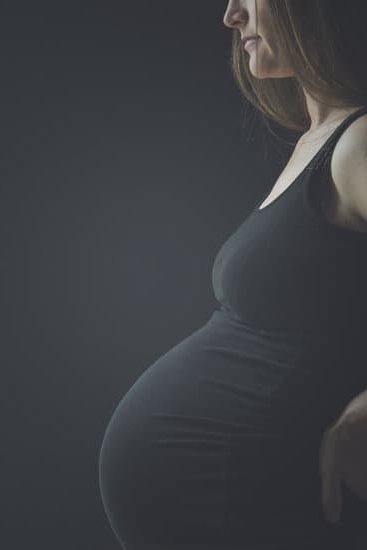How early can pregnancy symptoms start? Many women wonder about the signs that could indicate they are pregnant, especially if they are actively trying to conceive. Understanding the early signs of pregnancy is important for proper prenatal care and planning for the future. In this article, we will explore the physical, psychological, and emotional symptoms that may occur in early pregnancy, as well as common misconceptions and factors that affect when these symptoms may begin.
Pregnancy symptoms can vary from woman to woman and may not always be immediately recognizable. Some women may experience symptoms as early as a week after conception, while others may not notice any changes for several weeks. By understanding the different physical and emotional changes that can occur in early pregnancy, individuals can better recognize these signs and take appropriate actions.
It is essential to debunk common misconceptions about early pregnancy symptoms to avoid unnecessary stress or confusion. By becoming informed about what to expect and when to seek medical advice or take a pregnancy test, individuals can better manage their physical and emotional well-being during this significant time in their lives.
Understanding the Early Signs of Pregnancy
Pregnancy symptoms can begin to appear as early as one week after conception, though for some women, these symptoms may not be noticeable until a few weeks into the pregnancy. Some of the earliest signs of pregnancy include a missed period, nausea or vomiting (often referred to as morning sickness), breast tenderness, and frequent urination. These initial symptoms are often attributed to hormonal changes in the body as it prepares for pregnancy.
In addition to physical symptoms, many women also experience psychological and emotional changes during early pregnancy. This may include mood swings, irritability, and heightened emotions. These symptoms can vary widely from woman to woman and may also be influenced by factors such as stress levels and pre-existing mental health conditions.
It is important for women who suspect that they may be pregnant to be aware of these early signs and symptoms in order to seek appropriate prenatal care. Understanding the early signs of pregnancy can help individuals make informed decisions about their health and prepare for the changes that lie ahead.
| Early Pregnancy Symptom | Description |
|---|---|
| Missed Period | This typically occurs around the time of an expected menstrual cycle and is often one of the first noticeable signs of pregnancy. |
| Nausea/Vomiting | These symptoms are commonly referred to as “morning sickness” but can occur at any time of day. |
| Breast Tenderness | The breasts may become swollen or tender due to hormonal changes associated with pregnancy. |
Physical Changes That Occur in Early Pregnancy
Pregnancy is an exciting and life-changing experience for many women, and it’s important to be aware of the physical changes that occur in early pregnancy. These changes can vary from woman to woman and can start as early as a few days after conception. It’s essential to understand these physical symptoms to ensure a healthy pregnancy and seek appropriate medical care when needed.
Breast Changes
One of the earliest physical signs of pregnancy is changes in the breasts. This may include tenderness, swelling, and a tingling sensation. The areolas may also darken, and visible veins may appear on the surface of the breasts. These changes are due to hormonal shifts as the body prepares for lactation.
Fatigue
Feeling unusually tired is also common in early pregnancy. This fatigue can be attributed to increased levels of progesterone in the body as well as the body’s effort to adapt to the physiological changes necessary for supporting a growing fetus.
Nausea and Morning Sickness
Nausea, often referred to as morning sickness, is another hallmark symptom of early pregnancy. This may present as feelings of queasiness or actual vomiting, especially in the morning but can occur at any time of day. The exact cause of morning sickness is not fully understood, although it is believed to be related to hormonal changes and heightened sensitivity to odors.
Understanding these physical changes is crucial for women who are trying to conceive or suspect they may be pregnant. By being aware of these early symptoms, individuals can take proactive steps towards ensuring a healthy pregnancy journey from its very beginning.
Psychological and Emotional Symptoms of Early Pregnancy
Pregnancy is a time filled with physical and emotional changes, and it’s important to understand both aspects of the experience. Many women may not realize that psychological and emotional symptoms can be some of the earliest signs of pregnancy. These symptoms can start as early as one week after conception, even before a missed period.
One common emotional symptom of early pregnancy is mood swings. This can be attributed to the hormonal changes happening in the body, which can lead to rapid shifts in emotions. Some women may feel happy and excited one moment, only to feel irritable or sad the next. It’s important for women to recognize these mood swings as a possible sign of early pregnancy.
Another psychological symptom that may occur in early pregnancy is heightened anxiety or stress. The prospect of becoming a parent and all the changes that come with it can create an overwhelming sense of worry for many women. It’s completely normal to feel anxious about the future during this time, but it’s also important for women to seek support if these feelings become too intense.
In addition to mood swings and anxiety, some women may experience intense fatigue or difficulty concentrating in the early stages of pregnancy. These psychological symptoms are often overlooked, but they can have a significant impact on a woman’s well-being during this crucial time. Understanding and recognizing these emotional and psychological symptoms is essential for preparing for the journey ahead.
Common Misconceptions About Early Pregnancy Symptoms
There are several misconceptions about early pregnancy symptoms that can lead to confusion and anxiety for women who are trying to conceive or suspect they may be pregnant. It is important to debunk these myths and understand the truth behind early pregnancy symptoms.
Some common misconceptions about early pregnancy symptoms include:
- Pregnancy symptoms can only start after a missed period
- All women experience the same early pregnancy symptoms
- Early pregnancy symptoms are always physical in nature
In reality, early pregnancy symptoms can manifest differently for each woman and may not necessarily align with the traditional timeline of a missed period. It is crucial to understand the truth behind these misconceptions in order to accurately recognize the signs of early pregnancy.
It is important to remember that every woman’s body is different, and the onset of early pregnancy symptoms can vary greatly from person to person. Knowing the truth behind these misconceptions can help alleviate unnecessary stress and uncertainty during the early stages of potential pregnancy.
Factors That Affect the Onset of Pregnancy Symptoms
Pregnancy symptoms can vary for each woman, and the time at which they start to appear can also differ. There are several factors that can affect when a woman starts experiencing pregnancy symptoms. These factors include individual differences, hormone levels, lifestyle, and overall health.
One of the main factors that affect the onset of pregnancy symptoms is individual differences. Every woman’s body is unique, and this means that some women may experience symptoms very early on, while others may not experience any noticeable symptoms until later in their pregnancy. Additionally, hormone levels play a significant role in when symptoms appear. For example, higher levels of human chorionic gonadotropin (hCG) hormone can lead to earlier onset of symptoms such as morning sickness and fatigue.
Lifestyle factors can also influence when pregnancy symptoms start to manifest. Women who have healthier lifestyle habits such as eating a balanced diet, getting regular exercise, and managing stress may notice their symptoms appearing later compared to those who have less healthy habits. Additionally, overall health plays a role in symptom onset.
Women who are generally healthier may not experience as many or as severe symptoms early on compared to women with underlying health conditions. Understanding these factors can help women manage their expectations and recognize that the onset of pregnancy symptoms can vary widely.
| Factors Affecting Onset of Pregnancy Symptoms | Impact |
|---|---|
| Individual Differences | Different timelines for symptom appearance |
| Hormone Levels | Higher hCG levels may lead to earlier symptom onset |
| Lifestyle Habits | Healthier habits may delay symptom appearance |
| Overall Health | Underlying health conditions may lead to earlier or more severe symptoms |
When to Take a Pregnancy Test
How Early Can You Take a Pregnancy Test?
One of the most common questions among women who suspect they may be pregnant is how early can pregnancy symptoms start and when it is appropriate to take a pregnancy test. In general, most home pregnancy tests claim to provide accurate results as early as the first day of a missed period.
However, for more reliable results, it is recommended to wait at least one week after a missed period before taking a pregnancy test. This waiting period allows the body enough time to produce a sufficient amount of hCG hormone, which is what pregnancy tests detect.
Early Pregnancy Testing Options
Aside from traditional home urine tests, there are also early detection pregnancy tests available on the market. These tests claim to accurately detect pregnancy hormones up to six days before a missed period. It’s important to note, however, that these early detection tests may not be as accurate as they claim and can sometimes result in false negatives if taken too early. For the most reliable results, waiting at least one week after a missed period is still recommended.
Symptoms That Indicate It’s Time for a Pregnancy Test
While it’s tempting to rush into taking a pregnancy test at the first sign of potential symptoms, it’s important to recognize what symptoms actually warrant taking a test. Some common indications that it may be time for a pregnancy test include missing your period, experiencing breast tenderness or swelling, feeling unusually fatigued or nauseous, and having frequent urination.
If you suspect you may be pregnant based on these symptoms or other signs, it may be time to consider taking a pregnancy test.
Tips for Managing Early Pregnancy Symptoms
Pregnancy brings a host of physical and emotional changes, and managing these symptoms is an important aspect of prenatal care. Here are some tips for managing early pregnancy symptoms:
1. Eat small, frequent meals: Nausea and morning sickness are common early pregnancy symptoms. Eating small, frequent meals can help alleviate nausea and keep blood sugar levels stable. Consider carrying snacks with you to munch on throughout the day.
2. Stay hydrated: Dehydration can exacerbate symptoms like nausea and fatigue. It’s important to drink plenty of water throughout the day. If plain water is unappealing, try flavored water, herbal teas, or electrolyte-enhanced beverages.
3. Get plenty of rest: Fatigue is another common early pregnancy symptom. Listen to your body and get plenty of rest. Take naps when you need to, and prioritize sleep at night.
4. Practice gentle exercise: While it’s important to stay active during pregnancy, it’s also important to listen to your body and avoid overexertion. Gentle exercises like walking, swimming, and prenatal yoga can help alleviate physical discomfort and promote overall well-being.
5. Seek emotional support: Pregnancy can be an emotionally challenging time for many women. It’s okay to seek support from friends, family members, or a mental health professional if you’re feeling overwhelmed by the psychological aspects of early pregnancy.
6. Consider natural remedies: Some women find relief from certain symptoms using natural remedies such as ginger for nausea or aromatherapy for stress relief. However, it’s important to consult with a healthcare provider before trying any new remedies during pregnancy.
By following these tips for managing early pregnancy symptoms, women can navigate the physical and emotional changes of early pregnancy more comfortably and confidently.
Conclusion
In conclusion, it is important to recognize the significance of early detection and seeking support when it comes to pregnancy symptoms. Understanding the early signs of pregnancy and being aware of the physical and emotional changes that occur during this time can help expectant mothers and their partners better prepare for the journey ahead. By recognizing these symptoms early on, individuals can take the necessary steps to ensure a healthy pregnancy and seek support from healthcare professionals or loved ones.
It is crucial for individuals to be mindful of common misconceptions about early pregnancy symptoms as well as factors that can affect the onset of these symptoms. This understanding can help alleviate any unnecessary concern or anxiety, allowing for a more positive experience during this important stage in life.
Additionally, knowing when to take a pregnancy test and managing early pregnancy symptoms are also key aspects of this process. By being proactive and informed, individuals can effectively navigate this significant period in their lives with confidence and peace of mind. Overall, recognizing the importance of early detection and seeking support is essential for a healthy and successful pregnancy journey.
Frequently Asked Questions
Can I See Pregnancy Symptoms at 1 Week?
It’s unlikely to see pregnancy symptoms at just 1 week. Most women don’t experience noticeable symptoms until around 6-8 weeks into their pregnancy. Early signs may include fatigue, breast tenderness, and nausea.
How Soon Can You Know if You’re Pregnant?
You can potentially know if you’re pregnant as early as one week after conception, but for the most accurate results, it’s best to wait until your missed period to take a home pregnancy test. Blood tests at the doctor’s office can detect pregnancy even earlier.
Can Morning Sickness Start at 1 Week?
Morning sickness typically begins around the 6th week of pregnancy, so it’s rare to experience it as early as 1 week. However, some women do report feeling nauseous or more sensitive to smells very early on in their pregnancies, before they even miss a period.

Welcome to my fertility blog. This is a space where I will be sharing my experiences as I navigate through the world of fertility treatments, as well as provide information and resources about fertility and pregnancy.





